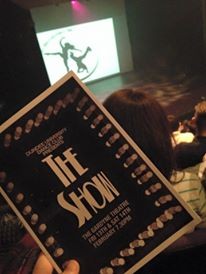This morning’s input with Carrie was very engaging and a completely new style of delivery, through a workshop. Not only was it a good opportunity to focus on the GTCS Standards Section 1, which we will use a great deal when on Professional Practise, but it was great to engage with other members of the year, sharing our interpretations of the task. At the beginning of the workshop we were divided into a “home group” which consisted of four of us. Shortly after, we were each given a number, assigning us to our “expert group” and it was within this group that exchanged ideas for fifteen minutes on our given topic, mine being ‘Integrity’. We then returned to our home group and discussed our opinions and findings with the rest of the group, however my group ran out of time.
Prior to beginning our discussion, it was highlighted that we must dig deep into the topic, finding examples which can demonstrate and reflect out use of integrity in the classroom.
Integrity
- Demonstrating openness, honesty, courage and wisdom.
If you are unsure about how to approach something or have a problem, seek help, demonstrating courage. If a child asks an open question, do not brush it off or avoid it, focus on it. Explore these areas with the children. It is important to expose children to the reality of life, do not hide them from it. An example of this that can be related to the news right now would be the photograph that immerged recently of the Syrian orphan who was washed up on the beach. If a child sees this and questions you, it is crucial that you discuss it. After all, these incidents are real life and so it is important we do not suppress it. If you expect a child to trust you, you must be open and honest with them. Lastly, we all agreed that if you make a mistake, it is important to admit where you were wrong and be open to change.
- Critically examining personal and professional attitudes and beliefs and challenging assumptions and professional practice.
We found this point slightly harder to discuss, however with a bit of aid from Carrie, we understood the meaning. We felt one of the most important tasks to do with balancing our personal and professional attitudes is knowing when it is appropriate to share your own opinion. Yes, it can be a good thing to input your view, however you cannot and must not force an opinion on your pupils (e.g. during the Referendum, your own vote should be kept to yourself)
We must also try to get rid of any preconceived thoughts on a specific subject or topic, even if it is not one of your strengths. Ask yourself, ‘how can I amend my teaching to meet a child’s needs?’ One issue Carrie raised with us was if you were to overhear a child say ‘that’s gay’ in the playground, using it in the wrong context. We can try to combat a child’s assumptions by relating back to a previous lesson, for example sexual education, and make them realise that it is not appropriate.
- Critically examining the connections between personal and professional attitudes and beliefs, values and practices to effect improvement and, when appropriate, bring about transformative change in practice.
We felt that it was important to be open minded and we can achieve this by doing research and finding resources to give children different perspectives. We felt that it is ineffective to just follow the textbook as is more than one answer and it is fundamental to keep the pupils engaged. Using our personal beliefs or experiences to modify the way topics are taught so that the children have a full understanding may also be beneficial.
I really enjoyed this task, and although our home group weren’t able to share all of our discussions I will try my best to do my own research on how to achieve these aims, and I look forward to adding to them when I go out on placement.





